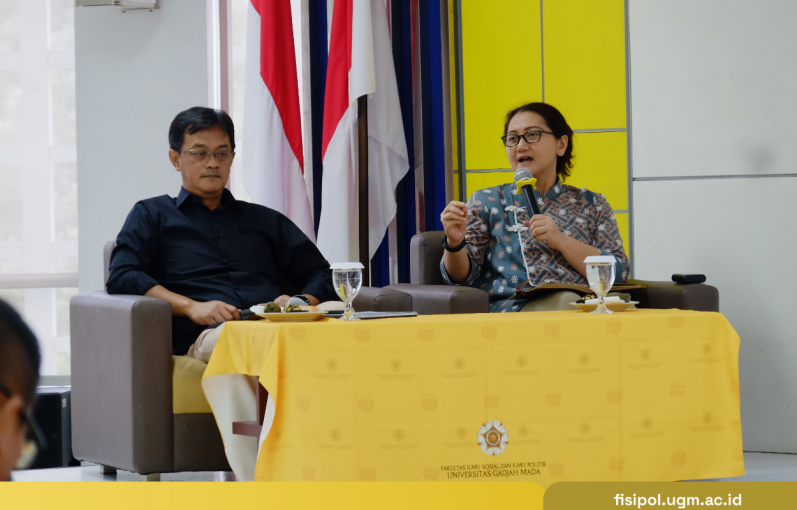
Yogyakarta, 19th of November 2024—Indonesian AID, or more officially known as Indonesia Agency for International Development, is now five years old. This anniversary acted as a catalyst to drive forward the initiation for Indonesian AID to organize a forum together with academics, in regards to creating a framework that is committed towards strengthening economic development in order to foster long-term diplomacy.
The event was organized offline at the Fisipol UGM Auditorium, titled “5 Years of Indonesian AID: Strengthening the Economy, Deepening Diplomacy,” with Luqman-nul Hakim as both moderator and leader of the discussion. In his introduction, Luqman explained that Indonesian AID itself is not a new idea or concept. The initiation for a program focusing on international development has already existed for a long time and it has manifested into the spirit of diplomacy since Indonesia became independent. Consequently, through the work unit created by the Public Service Agency sector of the Ministry of Finance, the issuing of Government Regulation No. 57 of 2019 was meant to manage grants for international cooperation and development.
The discussion forum invited several speakers, which included Poppy S. Winanti and Azhar Basyir. They shared their knowledge regarding the role of Indonesian AID in promoting economic development and cooperation. As a lecturer from Fisipol UGM specializing in international economy and politics, Poppy emphasized that the presence of Indonesian AID reflects two things, that Indonesia is not just a beneficiary country, but also a donor country. It also reflects the interests of Indonesia in spearheading its political economy diplomacy amidst facing challenges.
“The status of Indonesia as an emerging donor country does not only show the fact that Indonesia is developing economically, but it also shows that Indonesia is now a donor country. This has long-term implications, with one of them being the challenges of convincing the domestic population of such programmes,” Poppy added.
The implication for the Indonesian government to convince its domestic audience needs special attention, remembering that agencies for international development in developing countries are established differently in comparison to agencies from richer, developed countries that are considered as traditional donors, which have embedded themselves in the dynamics of the global capitalist system. Countries with the traditional donor status are usually hierarchical in nature and they also tend to dominate, in which the funds given to beneficiary countries often face issues of interdependence.
Azhar Basyir, as Head of the Legal and Institutional Relations Division of Indonesian AID, further explained that Indonesian AID is part of a strategic effort of Indonesia to consolidate aid initiatives that were once fragmented across various ministries. The Ministry of Finance then created the Public Service Agency in order to improve the management of grants that are invested by the government, so that it can result in proper aid capital that Indonesia can use to further aid international development. This perspective, which became the foundation of why Indonesia switched roles from a beneficiary to a donor country, brings values to global partnership.
This event also serves as a platform for discussing the roles of South-South cooperation in planning international development, as well as humanitarian aid, in order to reduce the inequality of access towards vital resources.
